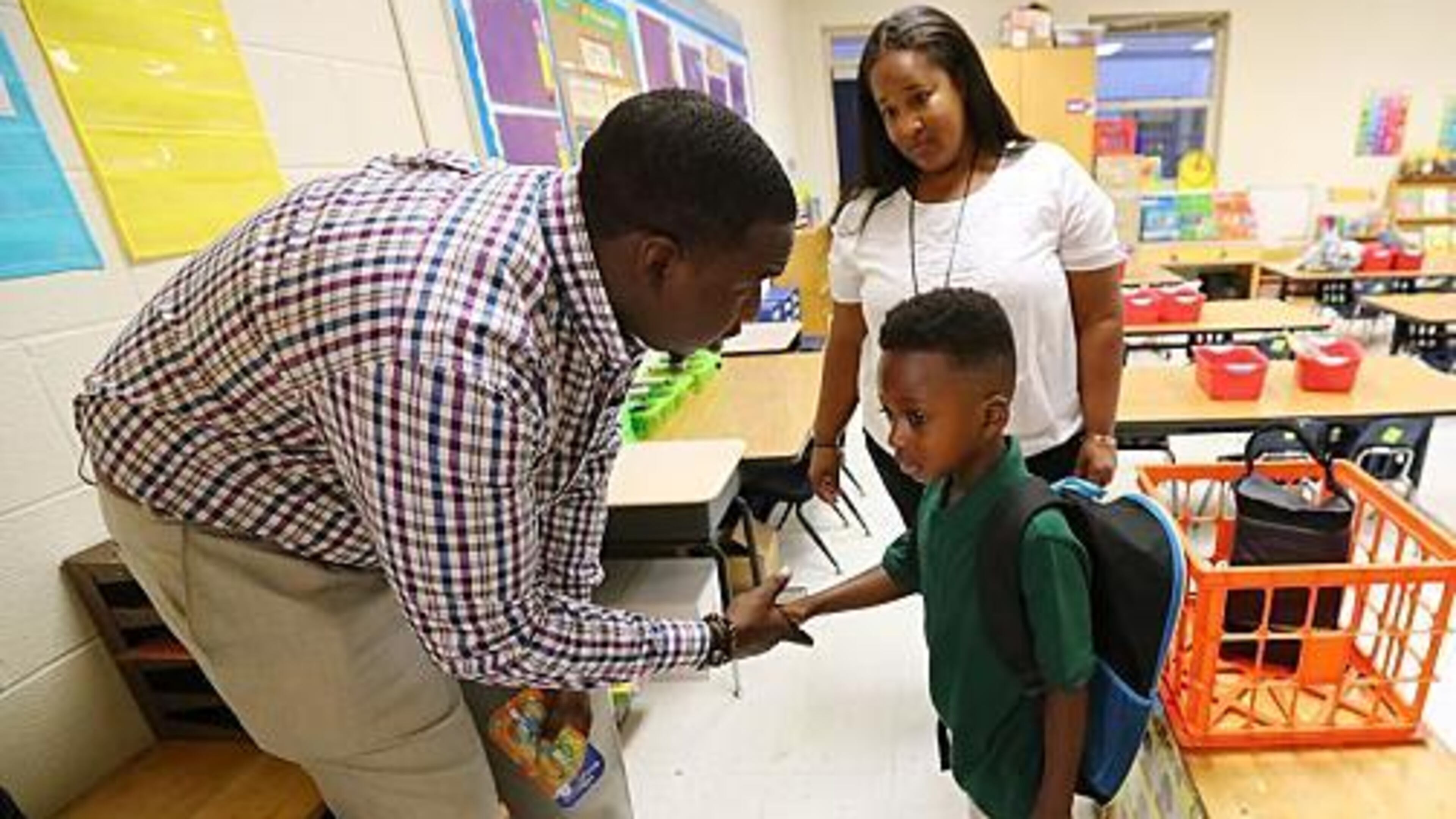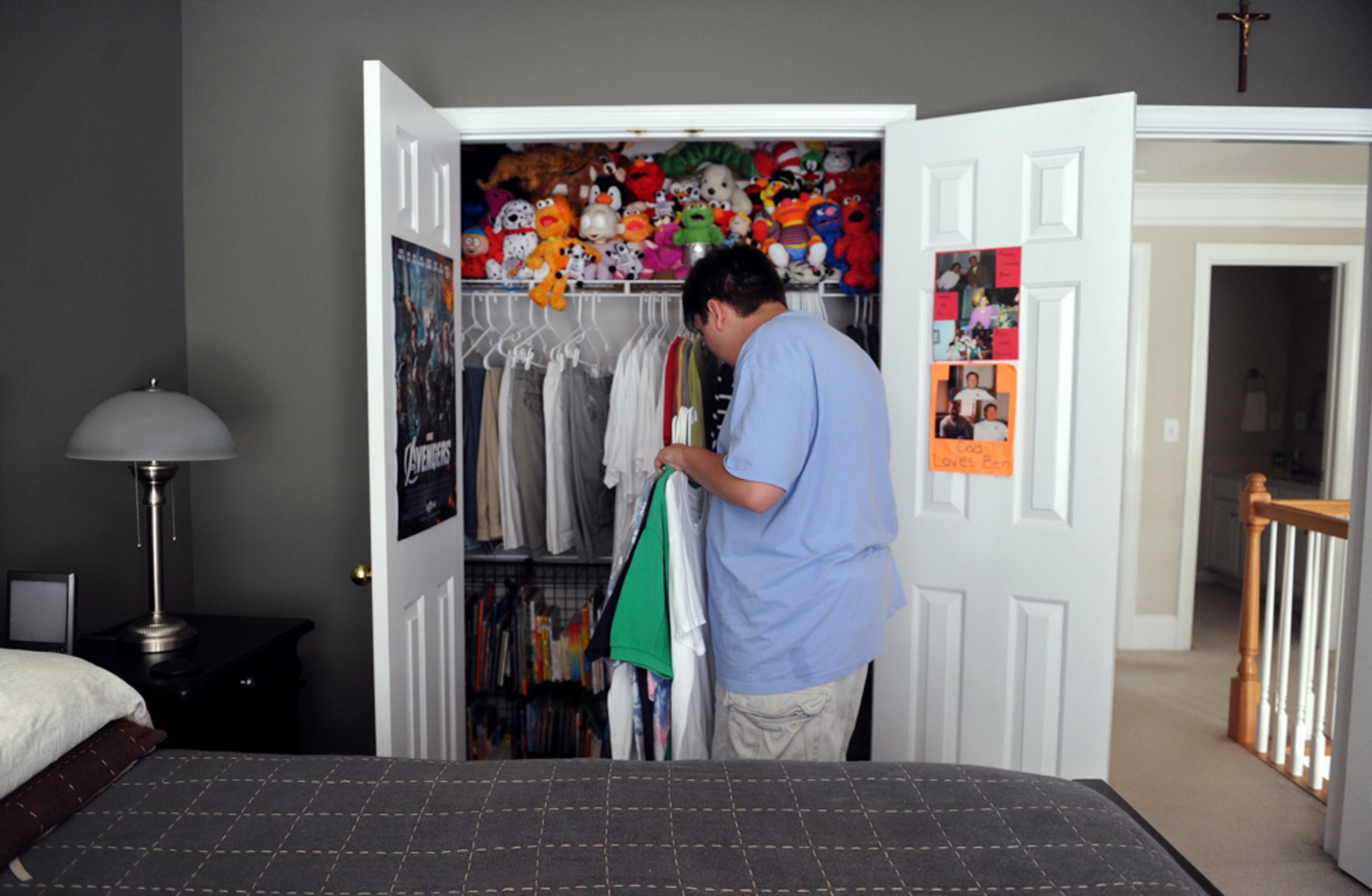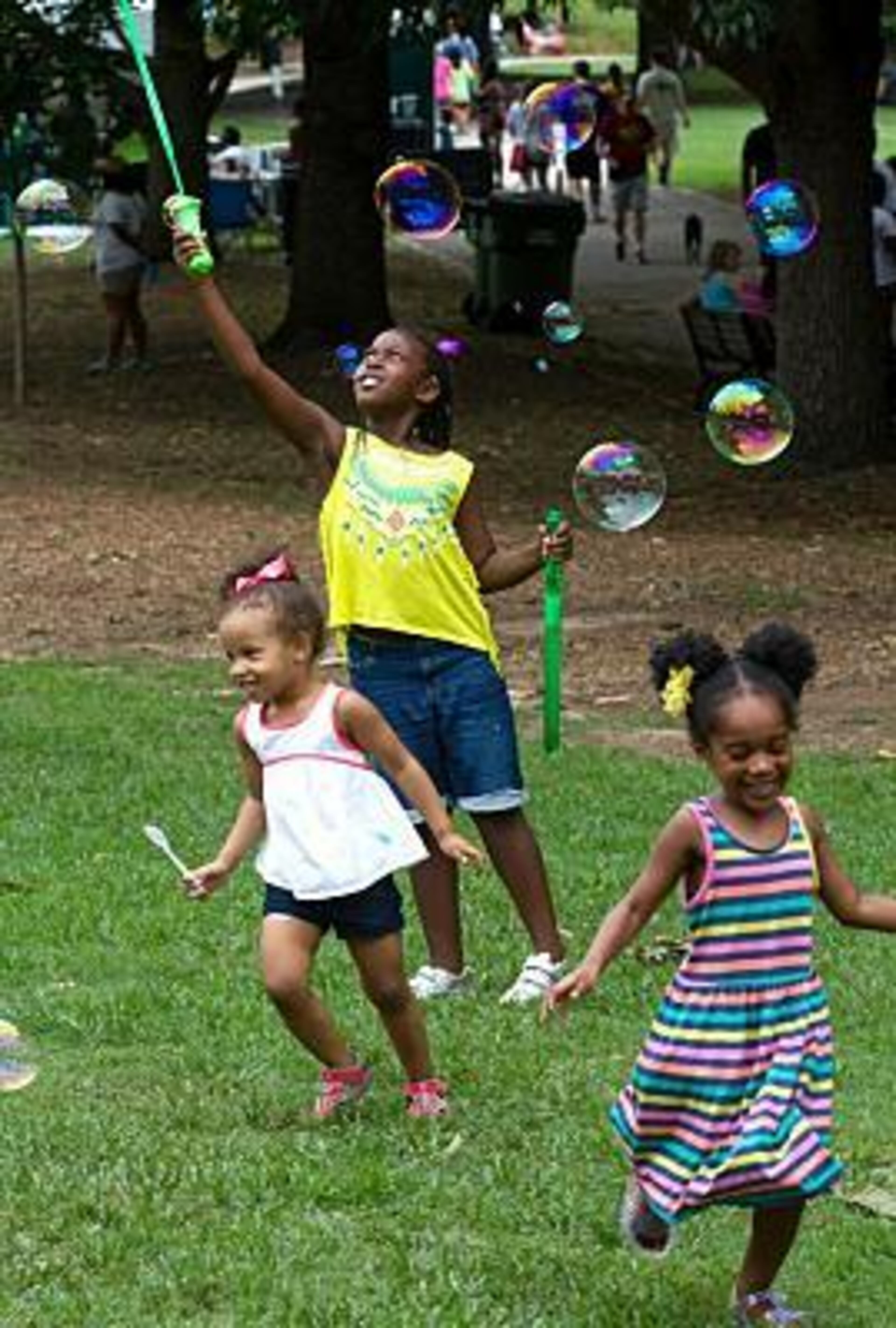10 tips to take the tears out of tidying up

Getting your kids to clean can be a difficult task. It takes time to find the right motivators, and sometimes children don't respond the way you'd like.
Kandice Arrington, a pre-K teacher at Beecher Hills Elementary in Atlanta, works with kids daily and says that there are certain things parents can do to motivate their children to take part in household chores. Here is a list of pointers to help you get on the right track.
- Give clear instructions.
When you want your child to start cleaning, you have to be specific about what you're asking them to do. "Sometimes they don't know where to start. Other times they don't know what to do or how to get something done," Arrington said.
Setting a clear expectation about what a clean room looks like and giving detailed instructions can make a world of difference for a child trying to learn a new skill. "Right before I'm ready for them to clean up, I give each group their explicit instructions," she said. "I'll say, 'I need all the blocks on the shelves, put away all the clothes from the play area, and hang up your art to dry."
For little guys, Arrington recommends tackling one task at a time. "Telling them to do too many things at once kind of gets lost in the sauce," she said. As your kids get older, you can tack on more instructions at once.

- Be consistent.
It's all about consistency and starting out when they're younger," Arrington said. "Show them exactly where the things go. If they pull something out, show them where to put it back each time." Giving kids the same instructions in the same format repeatedly will help them get the hang of cleaning.
- Make it fun.
"I love music, so I always put on the clean-up song," Arrington said. Music is one way to add some fun to the clean-up routine, but parents can also get creative with games and other tools to make tidying up feel like less of a chore. You can find The Clean Up Song on YouTube or you can buy it on iTunes.

- Add an incentive.
Some kids need a special incentive before they will feel motivated to perform certain tasks. "Sometimes I'll tell my kids, 'After we finish cleaning up, we're going to go out to the playground.' So even if they didn't want to clean, they'll cooperate so that they can go on to the next activity," Arrington said.
Another idea is to post a job chart with certain tasks listed along with the reward your child will get once that task is complete. This Child Behavior Reward chart on Amazon features a points system you can use to help your child work toward whichever incentive you choose.
- Set up a challenge.
Some kids like a challenge. If you're looking for ways to engage with them, you can ask them to sort their toys by size or color to add a bit more excitement. You could also set a timer to give them a chance to beat their best record for putting their toys away. The Happy Kids Timer app might be a good tool to help set up your child's routine.
- Create a competition.
Some children are motivated by competition. For smaller kids, you can try creating a friendly game by dividing the room in half, giving your child one side and then leaving the other side for yourself or a sibling. Then you can have a quick race to see which side can put the toys away the fastest or the neatest. HouseBeautiful.com has several similar cleaning games you can try.
- Play make-believe.
Most kids love to play dress-up and create their own personas. Build that into your strategy and let them clean up in character. You can even join in the fun by creating a scenario with cleaning as a crucial plot point and then playing along as they act it out.
- Start early.
"It's important to start when they're younger," Arrington said. "If they make a mess, have them help clean some of it up – even if it's not the whole thing." Starting early helps your kids develop good cleaning habits up front so that you won't have to change their routine later on.
- Give them the "why."
Whether you point out safety or health reasons, it's important to communicate with your children to make sure they understand why cleaning is important. "Kids don't know why they're doing the chores, so adults should talk to them about the reasons behind cleaning up," Arrington said.
- Be patient.
Working with your young ones can be a challenge, but with consistency, clear instructions and the right motivators, you can come out on top. Arrington recommends giving yourself a break and setting the right expectations for yourself. "Know that it's not going to perfect and it won't look like an adult did it, but praise them for trying anyway," she said.

